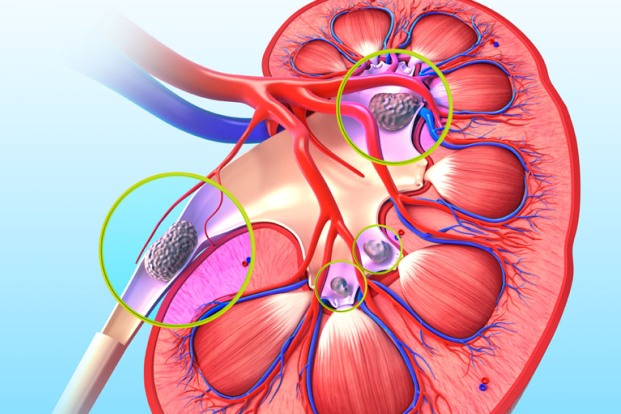Surgical treatment of kidney stones
Apr 19, 2022
Lithotripsy to Treat Kidney Stones. It procedure is most effective for stones in the kidney or upper ureter. Extracorporeal shock wave lithotripsy (ESWL) uses highly focused impulses projected and focused from external the body to pulverize kidney stones anywhere in the urinary system. Several procedures for small stones can be performed as same day surgery, allowing you greater flexibility and a rapid back to work and other daily activities. There are three major techniques for kidney stone surgery and the option of technique depends upon multiple factors including size and type of stone, medications you may be taking, your other medical issues & patient preference.

If a kidney stone is too big to be passed naturally 6-7mm (about 0.23 to 0.27in) in diameter or larger, your doctor may advise another treatment methodology to remove it. It could include extracorporeal shock wave lithotripsy (ESWL) or ureteroscopy. For certain kidney stones depending on size and venue your doctor may suggest a procedure known extracorporeal shock wave lithotripsy (ESWL). Treatment for kidney stones varies, depending on the type of stone and the cause.
Several small kidney stones won’t require invasive treatment. You may be able to pass a small stone by:
- Drinking water.We recommend drinking 1.9 to 2.8 liters a day to help flush out your urinary system. Unless your doctor tells you otherwise, drink enough fluid mostly water to produce clear or nearly clear urine.
- Pain relievers.With kidney stones, passing urine can be uncomfortable with mild to severe pain. To relieve the same, your doctor can prescribe antibiotics like pain relievers which should be consumed only as prescribed.
- Medical therapy.Your doctor may give you a medication to help pass your kidney stone. It is the type of medication called as an alpha blocker, relaxes the muscles in your ureter, helping you pass the kidney stone more quickly and with less pain.







